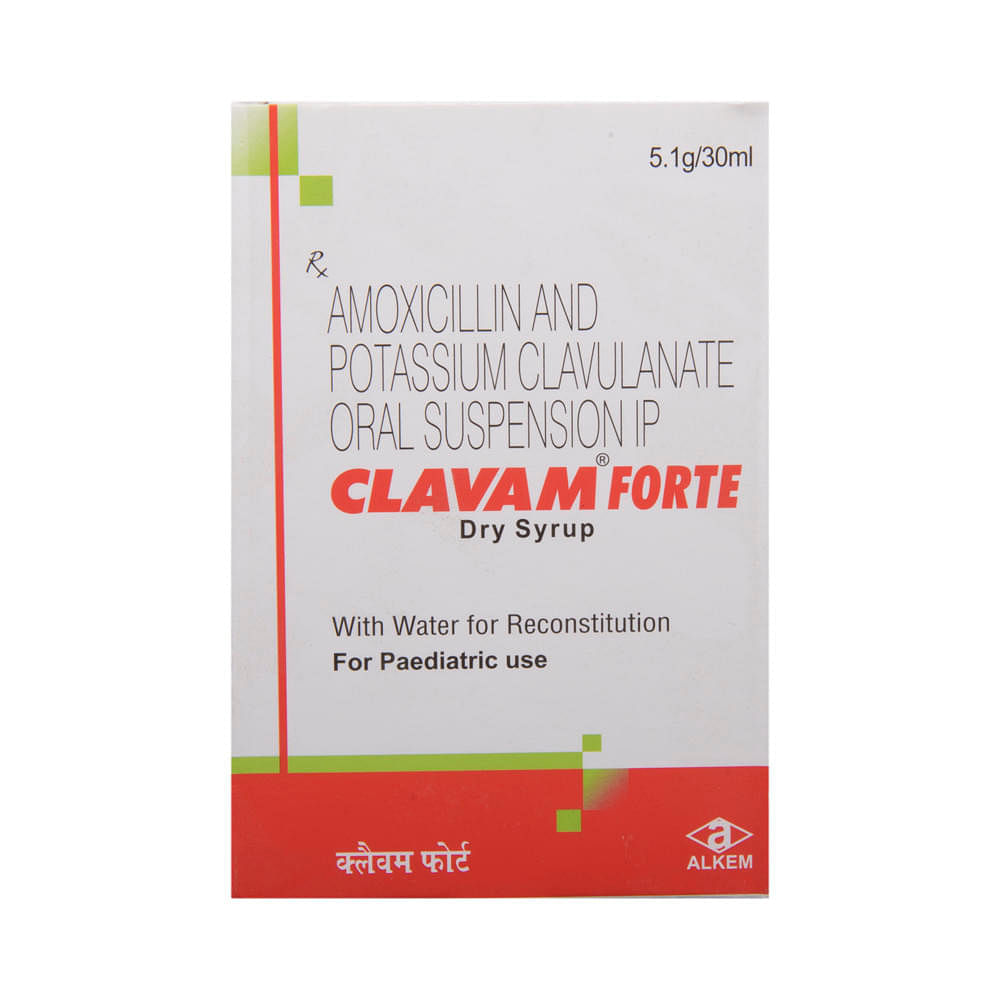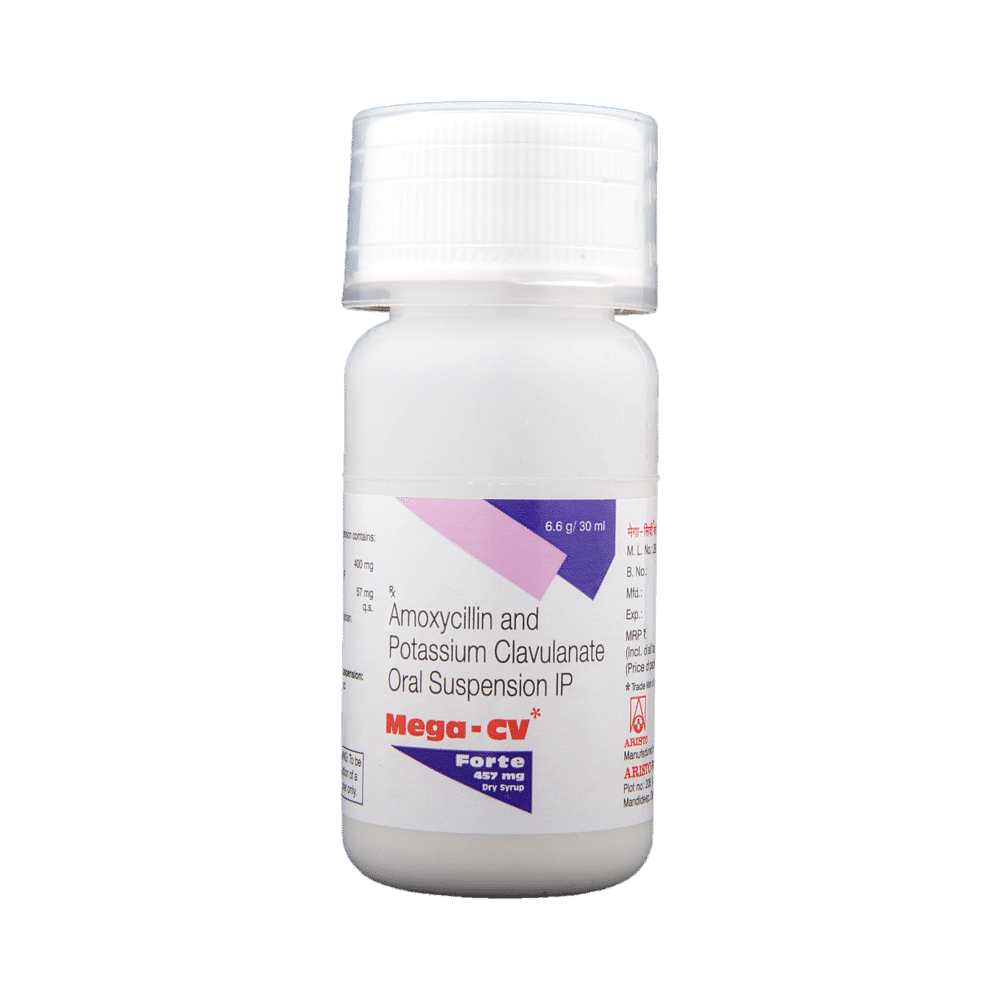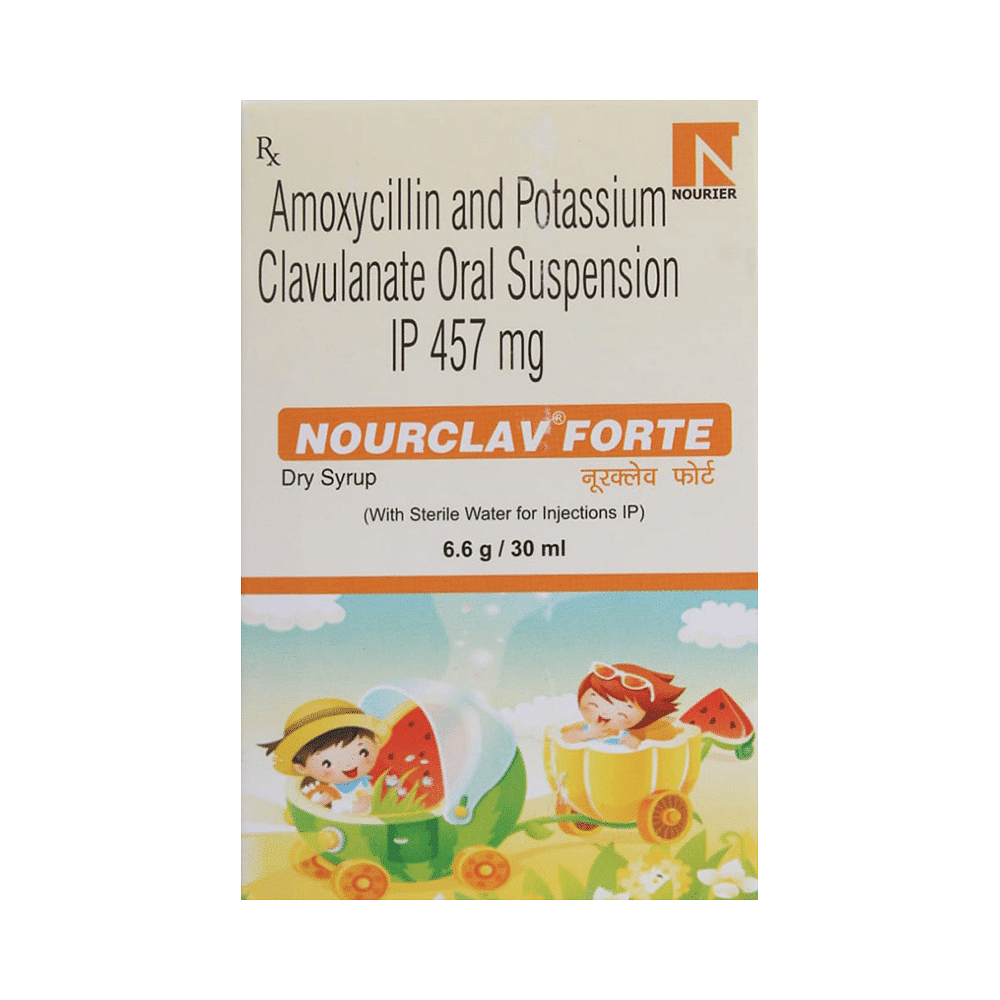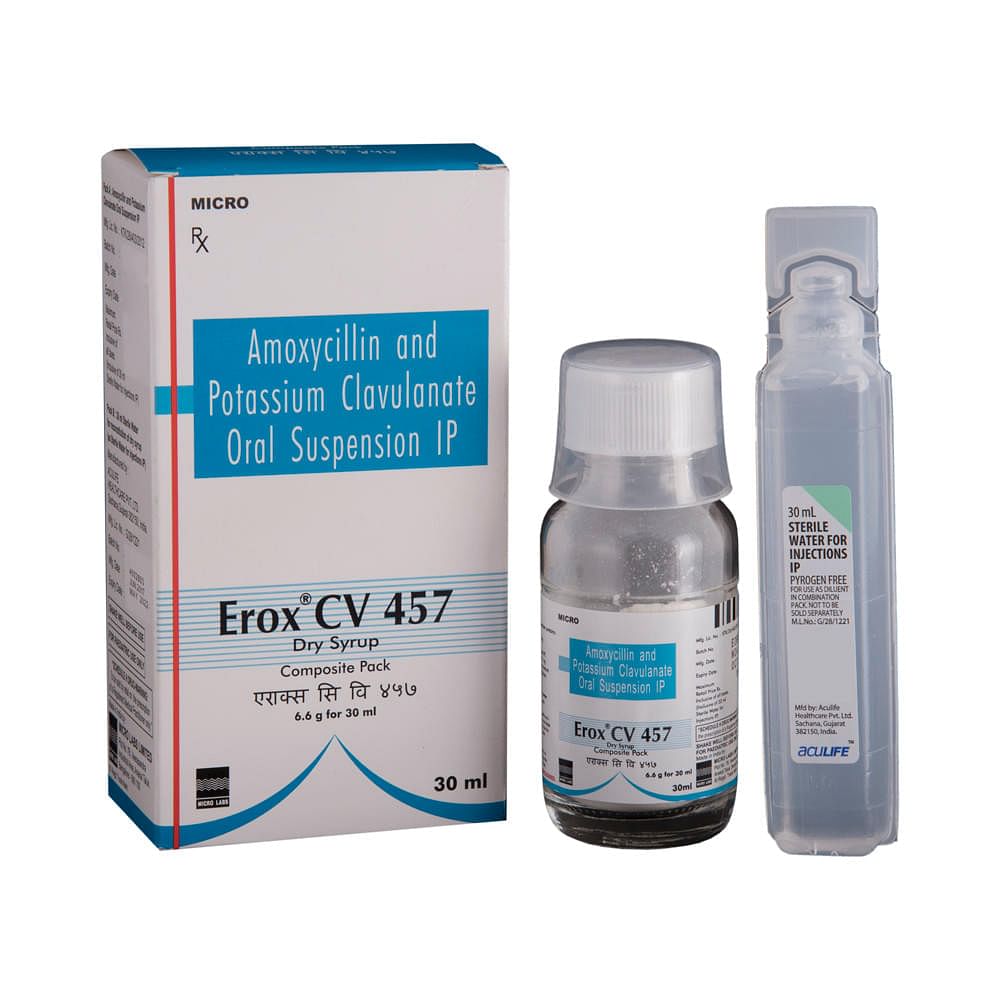
Penclav Dds Dry Syrup
Manufacturer
Zydus Healthcare Limited
Salt Composition
Amoxycillin (400mg/5ml) + Clavulanic Acid (57mg/5ml)
Key Information
Short Description
Penclav Dds Dry Syrup is an antibiotic used to treat bacterial infections of the ear, nose, throat, chest, lungs, teeth, skin, and urinary tract.
Dosage Form
Dry Syrup
Introduction
Penclav Dds Dry Syrup is an effective antibiotic medicine designed to combat bacterial infections in various parts of the body, including the ear, nose, throat, chest, lungs, teeth, skin, and urinary tract. It is particularly useful in treating bacteria that have developed resistance to other antibiotics, making it a valuable option for resistant tuberculosis as well. While it is generally well-tolerated, it is essential to complete the full course of treatment to prevent the bacteria from multiplying again or becoming resistant. Always consult a healthcare provider before starting or stopping this medication.
Directions for Use
Administer the prescribed dose of Penclav Dds Dry Syrup to your child as directed by the doctor. Ensure the full course is completed even if symptoms improve.
How it works
Penclav Dds Dry Syrup contains two active agents: amoxycillin and clavulanic acid. Amoxycillin prevents the formation of the bacterial cell wall, essential for bacterial survival. Clavulanic acid inhibits beta-lactamase, an enzyme produced by resistant bacteria, making this combination effective against various infections.
Quick Tips
Your child must complete the entire course of antibiotics. Stopping too soon may cause the bacteria to multiply again, become resistant, or cause another infection. Your child may have a bitter taste in the mouth after the intake of Penclav Dds Dry Syrup. Eating citrus fruit or sipping plenty of water or fruit juice may help. Encourage your child to drink plenty of water in case diarrhea develops as a side effect. Never give Penclav Dds Dry Syrup until and unless prescribed by the doctor. You must also never share your child’s medicine with anyone else even if they show similar symptoms. Do not give Penclav Dds Dry Syrup to treat common cold and flu-like symptoms caused by viruses. Never save medicine for future illnesses. It cannot be said whether the same medicine will work on future infections. Check ‘expiry’ before giving Penclav Dds Dry Syrup to your child. Immediately discard all the expired medicines. Stop Penclav Dds Dry Syrup immediately if your child develops an itchy rash, facial swelling, or breathing difficulty. Report to the doctor without any delay.
Related Medicines

Clavam Forte Dry Syrup

Mega-CV Forte 457mg Oral Suspension

Penhance Dry Syrup

Nourclav Forte Dry Syrup

Bax CV 400mg/5ml/57mg/5ml Dry Syrup

Mexclav CV Duo Dry Syrup

Kritmox CV Forte Dry Syrup

Moxnecs-Clav DS Dry Syrup

Proclav Dry Syrup

Erox CV 457 Dry Syrup
Frequently asked questions
Can other medicines be given at the same time as Penclav Dds Dry Syrup?
Penclav Dds Dry Syrup may interact with other medications or substances. Before starting this medication, tell your child’s doctor about all the medications they are currently taking. It's also crucial to check with your child’s doctor before administering any medicine to them.
Can I get my child vaccinated while on treatment with Penclav Dds Dry Syrup?
Antibiotics usually do not interfere with vaccine ingredients or cause adverse reactions in children who have recently received one. However, if your child is receiving antibiotics, it's best to wait until they recover from the illness before vaccination. Once symptoms subside, the doctor can schedule the vaccine.
Which lab tests may my child undergo while taking Penclav Dds Dry Syrup on a long-term basis?
Periodically, during prolonged therapy, your child's doctor might perform kidney and liver function tests. These assessments help monitor the effects of the medication.
Can I give a higher than the recommended dose of Penclav Dds Dry Syrup to my child?
Giving an increased dosage of this medication can increase the risk of side effects. In case of worsening symptoms, contact your child's doctor for reevaluation.
Can I stop giving Penclav Dds Dry Syrup to my child when the symptoms are relieved?
Do not discontinue the medication unless you have completed the full course prescribed by the doctor, even if symptoms improve. It's possible that the treatment is still beneficial even as symptoms subside.
Can Penclav Dds Dry Syrup cause diarrhea?
Penclav Dds Dry Syrup can cause diarrhea. This is because it kills harmful bacteria and may also affect healthy bacteria in your child’s stomach, causing diarrhea. If your child experiences diarrhea, encourage them to drink plenty of fluids. If the diarrhea persists or you notice signs of dehydration (e.g., reduced urination with dark-colored and strong-smelling urine), consult your doctor for advice.
Do all viral common colds result in secondary bacterial infection?
While most cases do not, antibiotics should only be used after consulting your child’s doctor. They are typically not required unless there is a specific concern or a condition that needs intervention.
The mucus coming out of my child's nose is yellow-green. Is it a sign of a bacterial infection?
Yellow or green mucus in the nose doesn't necessarily indicate a bacterial infection. During a common cold, mucus may thicken and change color (from clear to yellow or green). Symptoms typically last 7-10 days. If your child experiences other symptoms like difficulty breathing, rash, severe fever, abdominal pain, vomiting, etc., consult with the doctor immediately.
Is there any sign which shows that my child needs immediate medical attention?
If you notice any signs of allergic reactions (difficulty breathing, skin rashes), gastrointestinal problems (severe diarrhea), or liver damage (weakness, paleness, vomiting), contact your child’s doctor immediately. These are rare but serious side effects requiring expert care.


